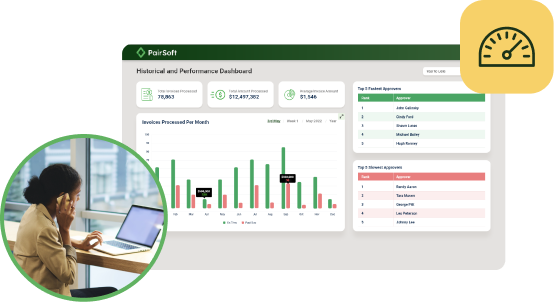
Wadih Pazos
Wadih founded both PairSoft and PaperSave. He is an avid technologist who specializes in streamlining operations and maximizing productivity.
View all posts by Wadih PazosWadih Pazos

For instance, your business will likely save a significant amount of money, as you won’t have to pay for reams upon reams of paper, ink cartridges, staples, folders or other accessories any longer. Workers will also probably be much more productive – rather than slaving away over a whirring printer or sifting through file cabinets, they can call up a particular record and get right down to the task at hand.
But this is a choice that will likely affect consumers as well. If you’re skipping paper in the office, that probably means that you’re no longer sending out solicitations to consumers via the mail, or maybe you’re abandoning traditional billing, among other things. So how do you tell your patrons and business partners you’ve gotten rid of paper?
This might be the easiest method. The only thing is, you’ve got to make sure you already have patrons’ email addresses, so you may want to collect this information when customers sign up for services or when they’re making a purchase at the counter.
This is also likely going to be the most effective manner of informing individuals about the shift – many of the other options involve paper in some manner, so electronic communications might be the most appropriate method.
If customers’ email addresses aren’t within the company database yet, sending out a letter could be the only option. This could be a way to not only inform patrons of the change, but also allow them to sign up for future communications by providing their email addresses.
However, there are other strategies company leaders might want to take. For instance, using recycled paper is a good way to show individuals that the business is truly interested in the green benefits of digitizing offers. Moreover, the company needs to only send out one paper letter. This is where Verizon recently failed, according to Gizmodo, as the wireless corporation informed clients that the company was going paperless by sending out four letters. Not only is this definitely not cost effective, but it could suggest that the business isn’t serious about their new initiative.


Many organizations start with manual receipt handling, fragmented card feeds and slow AP processes. Implement AI agents to auto-capture receipts, route approvals, enable punch-out buys and post to the ERP.
Result: faster batching, fewer errors and cost savings. “This saves us hours every month.”
Many organizations face slow, paper-heavy AP and fragmented procurement that waste time and inflate costs. AI Agents can automate approvals, PO matching and record sync to improve speed, accuracy and control. Client quote: “It freed up hours and made our process reliable.”
Operational drag and rising costs slow growth: teams waste time on manual tasks, misaligned priorities and opaque processes. AI Agents help automate routine work and coordinate actions across teams. “We’ve lost time to repeats and handoffs,” says a typical client.
Companies struggle with manual procurement, fragmented approvals, and costly integrations that slow growth and obscure spend. Our AI Agents streamline requisitions, POs, and invoice matching to cut manual work and improve visibility. “We were wasting time and missing insights,” says a client.

Many teams start with fragmented PO/AP systems, manual matching and delayed financial reporting. Deploying AI agents to automate PO checks, real-time encumbrance tracking and invoice matching reduces processing time and errors, delivering live budgets and faster closes. “Finally, we can see current balances and approve instantly.”
Many companies juggle growing invoice volumes and legacy systems. They struggle with manual processes, compliance gaps and limited headcount. Our AI Agents automate integrations, enforce rules and surface exceptions. The typical outcome: faster closes and measurable ROI. “We stopped chasing invoices.”